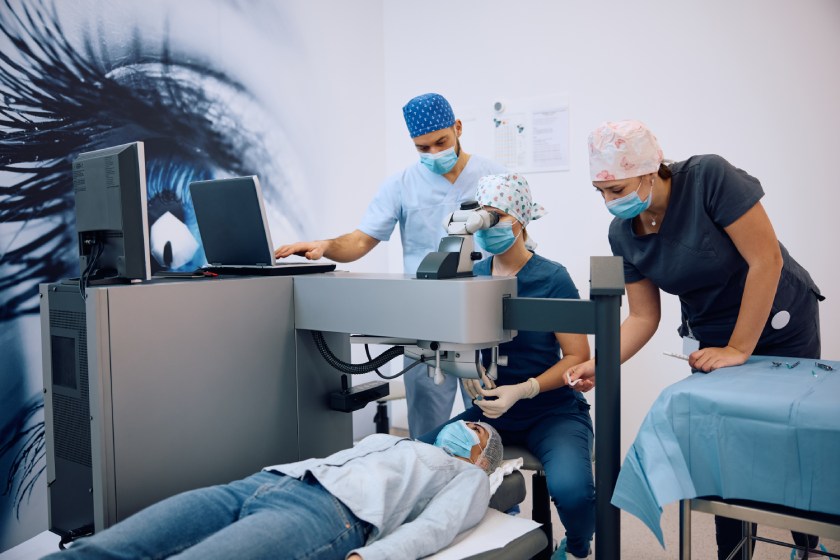Did you know that LASIK began in India during the 1980s? Surprising, isn’t it? Since then, the procedure has undergone multiple advancements, changing the lives of many for good! Why do we say so? Well, it is not us! The statistics say so. Here’s a brief overview of what the numbers have to say —
- LASIK surgeries have a complication rate of less than 1%
- The success rate of LASIK surgeries is 99%
For this reason alone, we have created a quick guide for you to understand the LASIK treatment procedure better. It covers important aspects like why, how, and what to expect from the procedure. So, why wait? Let’s dive straight into it.
LASIK for Eyes: Short Overview
LASIK stands for ‘Laser-assisted in situ keratomileusis.’ It is one of the most popular and common laser refractive surgery for correcting the following vision concerns:
- Farsightedness (hyperopia)
- Nearsightedness (myopia)
- Astigmatism
- Presbyopia
What to Expect During LASIK?
Now that we have understood what LASIK is, what concerns it can solve, and how the laser is used, let’s understand what you, as a patient, can expect from the process.
Before LASIK
Like any other medical surgery or treatment, LASIK treatment begins with consultation with an ophthalmologist (eye specialist). During this appointment, you can expect an assessment of your eye health. This includes factors like your corneal thickness and type of refractive error.
Additionally, your doctor will check for the following signs:
- Any kind of eye infection
- Inflammation
- Dryness in the eyes
- Large pupils
- High eye pressure
Moreover, the doctor will take a medical history. If you wear contact lenses, then your doctor will first understand which lenses you have been wearing and for how long. Accordingly, you will be guided to stop wearing them before the next set of tests and surgery. The reason? Contact lenses can change the shape of your corneas.
Finally, the doctor will measure your cornea thoroughly for its thickness, shape, and irregularities. This will help them understand which areas need reshaping and what amount of tissue needs to be removed. Plus, your eye doctor will discuss the risks and benefits and walk you through the surgery process.
Also Read – 5 Common Eye Conditions: Causes, Symptoms and Treatment
During LASIK
LASIK is a fairly short procedure that takes about 10-12 minutes or so to complete. Here’s a short overview of the process:
- LASIK is typically performed under local anesthesia in the form of eye drops.
- Next, the surgeon will use a specialized laser or microkeratome to create a thin flap in the outer layer of the cornea. This flap is then gently lifted to access the underlying corneal tissue.
- Using an excimer laser, the surgeon precisely reshapes the cornea to correct refractive errors. This step is customized based on the type of error you have and your eye condition.
- Once the corneal reshaping is complete, the flap is carefully repositioned, where it adheres naturally without the need for stitches.
After LASIK
- Protective glasses are given as a protective measure.
- Your eye may feel itchy, gritty, and watery. But do not rub it.
- You may be given post-operative eye drops for healing and comfort
- Your eye may experience light sensitivity, or the whites may turn red. It should settle in a few days.
- You will have to visit your doctor within 24-48 hours post-surgery and regularly for at least six months.
- Additionally, wait for the recommended time before you start applying cosmetics or stare at the screen for long hours.
Also Read – 5 Eye Health Tips Essential for Optimal Vision
Conclusion
Additionally, wait for the recommended time before you start applying cosmetics or stare at the screen for long hours.
Your eyes are really delicate post-surgery. Thus, thoroughly discuss with your doctor about the care you need to take. Our eye specialists at Shree Ramkrishna Netralaya believe in staying ahead of the curve. They are experts at what they calculated in their approach while adhering to international and national medical standards.
So, if you are looking for a partner to help you correct your vision-related concerns, look no further than us. We are here to serve you in the best way we can. Contact us now

